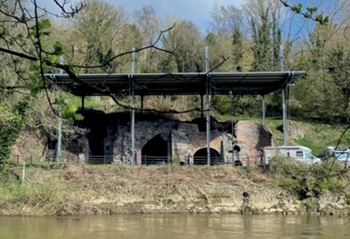Bricks and Water: A plan of action for building homes and managing water in England
On 19 June 2018, the Westminster Sustainable Business Forum (WSBF) published ‘Bricks and Water: A plan of action for building homes and managing water in England’, an evaluation of the way water and housing policy is being implemented in England, aimed at formulating a plan of action for building homes and managing water.
The structure and content of the report was informed by a steering group including politicians and representatives from industry and academia. It was co-chaired by Angela Smith MP and Baroness McIntosh, both of whom have considerable experience in the water sector.
The report includes recommendations for tackling the housing crisis whilst improving flood resilience and water availability without over-burdening future generations with increased costs.
The key findings of the report are:
- By 2050, with a projected population increase of 8.7 million, water demand could exceed supply by up to 22%.
- By 2050, 129% more homes (nearly 2.5 million) may be at risk of flooding.
- By 2050, an additional 4 billion litres of water will be required.
- The design of new-build houses must consider water efficiency and flood resistance.
- Continuing cuts to the budgets of environment bodies negatively impacts on their ability discharge their responsibilities.
- There has been limited progress on adapting communities to climate change, and just 42% of local authorities have an adaptation plan/strategy.
- There is no designated forum for problem-solving between water companies, housebuilders and local authorities.
- The planning system is overloaded and too focused on local issues.
- Water is not sufficiently factored into value-for-money decisions at the institutional or householder level and the importance of water efficiency measures is not recognised adequately.
- Evidence suggests that new homes tend to be less water efficient than expected.
- Sustainable Urban Drainage Systems (SUDS) have not become the norm with developers, drainage engineers or housebuilders.
- The UK risks a lack of environmental standards if they are no longer legally enforced independently post-Brexit.
The report made the following recommendations:
- The government should urgently introduce a mandatory ‘Bricks and Water Sustainability Code’ as a tougher and simpler planning framework.
- The Environment Secretary’s new strategic body should be truly independent and provide leadership on water management.
- Water issues should be tackled at the sub-national as well as national level to address flooding challenges.
- Property Resilience Certificates (based on BRE’s Home Quality Mark), and water efficiency labelling for fixtures and fittings should be introduced.
- Green, rather than concrete, infrastructure should be prioritised as the norm for homes and communities.
- DEFRA should prioritise the management of water as a public good.
The Westminster Sustainable Business Forum (WSBF) is a high-level coalition of key UK businesses, parliamentarians, civil servants and other organisations, seeking to promote effective sustainability policy in the UK. It is part of Policy Connect, a cross-party think tank that seeks to improve people’s lives by influencing public policy.
You can download the report here.
[edit] Find out more
[edit] Related articles on Designing Buildings Wiki
- Flood and Water Management Act
- Groundwater control in urban areas.
- Home Quality Mark.
- Sustainable urban drainage systems.
- Sustainable water.
- The State of the Environment: Water Resources.
- Trading systems for water resources.
- Urban water systems management: A data analytics approach EP 105.
- Water Act 2014.
- Water efficiency – The next big sustainability issue?
- Water framework directive.
- Water industry pressures.
- Water investment.
- Water transfers and interconnections.
- World Water Day.
Featured articles and news
The act of preservation may sometimes be futile.
Twas the site before Christmas...
A rhyme for the industry and a thankyou to our supporters.
Plumbing and heating systems in schools
New apprentice pay rates coming into effect in the new year
Addressing the impact of recent national minimum wage changes.
EBSSA support for the new industry competence structure
The Engineering and Building Services Skills Authority, in working group 2.
Notes from BSRIA Sustainable Futures briefing
From carbon down to the all important customer: Redefining Retrofit for Net Zero Living.
Principal Designer: A New Opportunity for Architects
ACA launches a Principal Designer Register for architects.
A new government plan for housing and nature recovery
Exploring a new housing and infrastructure nature recovery framework.
Leveraging technology to enhance prospects for students
A case study on the significance of the Autodesk Revit certification.
Fundamental Review of Building Regulations Guidance
Announced during commons debate on the Grenfell Inquiry Phase 2 report.
CIAT responds to the updated National Planning Policy Framework
With key changes in the revised NPPF outlined.
Councils and communities highlighted for delivery of common-sense housing in planning overhaul
As government follows up with mandatory housing targets.



















